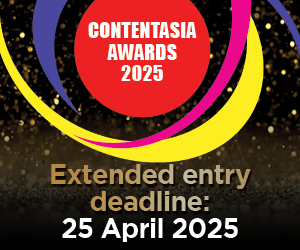
When Korean formats producers and creators took to the stage at the MIP TV market in Cannes this month, it was with a brave face against a background of anti-Korean devastation across China that has decimated their most lucrative foreign licensing/production market ever.
Their choice? To double down on international markets in the hope of replicating the success of, for instance, CJ E&M’s Grandpa Over Flowers, which was remade for NBC in the U.S. as Better Late Than Never.
Korea’s major creators are coming at the challenge with a wide mix of genres, including drama and “darker side of humanity” reality.
These include free-TV broadcaster Seoul Broadcasting System’s (SBS) The Heir, a reality show where rival heirs battle “siblings” en route to getting everything. SBS’ Insoon Kim, manager of SBS’ Creative Oasis Lab/Global Production Team, describes the series as the “dark side of social hierarchy”.
Three scripted drama formats were highlighted in Cannes among slates dominated by variety and various competition shows.
Of the 12 titles that broadcasters and producers chose to present during the Korea formats showcase, 25% were drama, 25% were variety, and the other six were singing competitions (2), dating competitions (2), reality (1) and a new light entertainment eating competition (1).
Free-TV broadcaster Munhwa Broadcasting Corporation (MBC) brought its first scripted format, supernatural suspense drama The W – Two Worlds Apart, to MIP TV this year.
The 16-episode 2016 series, directed by Jung Dae-yoon, is about a heart surgeon forced to juggle real and virtual worlds after her father, a famous comic book artist, goes missing.
The other scripted formats presented in Cannes were SBS’ legal thriller, Innocent Defendant, and Good Manager, from public broadcaster Korean Broadcasting System (KBS).
Good Manager, the story of an accountant who becomes a middle manager to embezzle a large sum of money but instead ends up fighting for his employees’ rights, doubled its ratings in its first five episodes on air despite having no major stars, says KBS Media’s Hanbyul Kim. The 20-episode series aired on KBS2 from January to March this year in the prime-time Wednesday/Thursd...
When Korean formats producers and creators took to the stage at the MIP TV market in Cannes this month, it was with a brave face against a background of anti-Korean devastation across China that has decimated their most lucrative foreign licensing/production market ever.
Their choice? To double down on international markets in the hope of replicating the success of, for instance, CJ E&M’s Grandpa Over Flowers, which was remade for NBC in the U.S. as Better Late Than Never.
Korea’s major creators are coming at the challenge with a wide mix of genres, including drama and “darker side of humanity” reality.
These include free-TV broadcaster Seoul Broadcasting System’s (SBS) The Heir, a reality show where rival heirs battle “siblings” en route to getting everything. SBS’ Insoon Kim, manager of SBS’ Creative Oasis Lab/Global Production Team, describes the series as the “dark side of social hierarchy”.
Three scripted drama formats were highlighted in Cannes among slates dominated by variety and various competition shows.
Of the 12 titles that broadcasters and producers chose to present during the Korea formats showcase, 25% were drama, 25% were variety, and the other six were singing competitions (2), dating competitions (2), reality (1) and a new light entertainment eating competition (1).
Free-TV broadcaster Munhwa Broadcasting Corporation (MBC) brought its first scripted format, supernatural suspense drama The W – Two Worlds Apart, to MIP TV this year.
The 16-episode 2016 series, directed by Jung Dae-yoon, is about a heart surgeon forced to juggle real and virtual worlds after her father, a famous comic book artist, goes missing.
The other scripted formats presented in Cannes were SBS’ legal thriller, Innocent Defendant, and Good Manager, from public broadcaster Korean Broadcasting System (KBS).
Good Manager, the story of an accountant who becomes a middle manager to embezzle a large sum of money but instead ends up fighting for his employees’ rights, doubled its ratings in its first five episodes on air despite having no major stars, says KBS Media’s Hanbyul Kim. The 20-episode series aired on KBS2 from January to March this year in the prime-time Wednesday/Thursday slot.
SBS’s Innocent Defendant ran in Korea from January to March this year, as well as on mobile platform Viu and regional linear channel Sony ONE. The series is about a prosecutor who wakes up one day to find himself behind bars as a convict on death row with no memory of how he got there.
Light and fun entertainment remains the backbone of Korea’s bid for global attention.
Top shows in the arsenal include new CJ E&M game show Golden Tambourine, where teams compete noisily for space in a room with a moving wall.
“What’s next. Singing? Cooking? Viewers still have a huge appetite for these genres,” says Jinwoo Hwang, CJ E&M’s head of formats and content development.
“But in order to gain more viewers, we need a slightly different approach,” he says, adding that the way forward is “fun, faster paceand families”. CJ E&M’s first title in this new light entertainment genre is The Gobbler Race, which premiered in Korea at the end of March.
Meanwhile, opinion varies on whether and/or when the China market will come back. There’s a sneaking suspicion that even if political winds shift and China’s fury over Korea’s deployment of the U.S.-developed THAAD missile defence system dissipates, mainland media authorities aren’t going to stand by and watch Korean IP soar so far ahead of domestic Chinese production again. Somewhere between now and whenever, Chinese producers look like they will be given every protection/advantage and then some to up their game.
This year’s nightmare for Korean companies with China on their business plans follows licensing and production boom times, during which an oft-repeated line was that there were more Korean producers in China than in Korea for everything from formats and drama to live events with Korean idols. Talk is that a single episode of Korean drama could fetch anywhere from US$400,000 to RMB10 million/US$1.4 million, which is what is thought to have put mainland media authorities on high alert.
In addition to Korean distributors casting their nets wider for new opportunities, buyers in Asia say the fallout has been higher rights fees for Korean drama as Korean IP owners try to make up for the China shortfall. This comes at a time of unprecedented demand for Korean content from a slew of old and new platforms.
Conglomerate CJ E&M, which operates a vast media empire including production and cable channels, leads the country’s efforts to expand its international content footprint.
While CJ E&M’s most high profile success in the U.S. has been Better Late Than Never, the relationship works both ways. CJ E&M affiliated production house Studio Dragon, has produced a local version of HBO’s Entourage for CJ E&M’s tvN cable channel. Entourage Korea premiered on tvN in Korea in November 2016 with an express window on the increasingly aggressive regional tvN linear service, which is competing fiercely with two regional pay-TV incumbents – Sony Pictures Television Networks’ ONE and Turner’s Oh!K. CJ E&M was also behind a local version of CBS Studios’ The Good Wife, which aired on tvN in July/August last year.
It’s not yet clear – at least not publicly – what impact the China freeze will have on these budding drama co-production romances, but the feeling is that without China, conversations could go quite differently.
Meanwhile, with or without China, co-development remains a major trend. Speculation at MIP TV earlier this month was that advanced negotiations are under way for a U.S. version of The Society Game, a reality show co-developed in Asia by Endemol Shine Group/CJ E&M. No announcements had been made at press time.
There’s also nothing so far out of the NBCUniversal-MBC partnership announced in October 2016 to co-develop/produce original formats.
And then we’re waiting for production updates from Korea’s iHQ, in which A+E Networks took a stake last year. Given Asia’s seemingly unquenchable appetite for Korean drama, the investment could mean A+E’s content conversations could have a whole new angle.
Will all this fill the hole left by China? Maybe not yet. But it’s not like anyone has a choice.
Published on ContentAsia's APOS Special, 19 April 2017



















